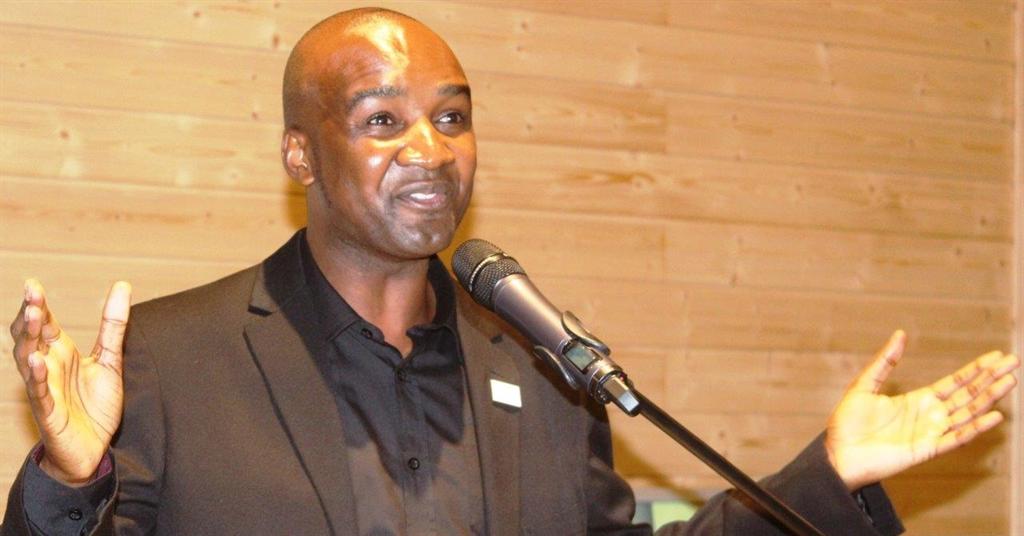Heinrich Hafeni’s social entrepreneurship
Heinrich Hafeni Nghidipaya was born 33 years ago in Swakopmund. The first born of five children, he was raised by his single mother, a domestic worker, and his grandmother.
As Heinrich grew up he became increasingly impressed and inspired by his mother.
Although she had little formal education, she managed to create a side business at home through which her children sold sweets and sausages.
The additional income was enough to keep all of the kids in school and give them a decent meal each day.
Seeing how his mother sacrificed for her family, Heinrich vowed that when he grew up he would earn enough so that his mother would not have to work any more.
While still in high school, ‘Mr Hafeni’, as he is known socially, secured work as a dishwasher and waiter at a local hotel and began to give money to his mother.
Dividing his time between his studies and his work, Hafeni’s grades were not high enough to gain admission to a university.
He continued to work at the hotel until at the age of 23, when he was hired by an international travel company as a tour leader.
The job was much more exciting than the one he held previously, and enabled him to travel through 14 countries in Southern and Eastern Africa.
The Next Step
Hafeni interacted with people from all over the world through his work and came to realise that he wanted to pursue the dream of starting his own business.
At the age of 28, he quit his job and founded Hafeni Tours and Travel, a company that specialises in cultural tours of Namibia.
The business allows Hafeni to help groups of visitors experience the richness of Namibia’s culture. They interact with children at local schools and with men and women in clubs, restaurants, and markets in townships, as well as in his home town of Swakopmund.
There are also opportunities to visit sites of local people’s development projects, like Naftalina Mauha’s Tears of Hope orphanage.
Through his business and travels in the townships, Hafeni came to recognise that in many cases, Namibia’s youth were not the ones initiating development efforts to assist their communities. Many instead seemed focused on their own advancement and free time.
Hafeni wanted to change this kind of thinking and together with three like-minded others co-founded ‘Swakopmund Youth with a Vision’.
The group seeks to encourage the youth to be more actively engaged in their communities and to take on leadership positions.
Hafeni himself took on additional leadership roles and now represents his town in its Chamber of Commerce and sits on other community decision-making boards.
Setbacks and comebacks
In 2014, Hafeni and his friend Piet Carstens, one of the co-founders of Swakopmund Youth with a Vision, learned of a new opportunity through President Obama’s Young African Leaders Initiative or YALI.
The new US-sponsored programme was offering 500 Mandela Washington Fellowships for training and study in the USA, for six weeks.
Hafeni and Carstens made up two of the over 50 000 applicants for the 500 slots. Carstens was selected, Hafeni was not.
Although disappointed that he was not selected, Hafeni recognised that he should not give up, but apply again.
In 2015, he became one of only nine young leaders selected to represent Namibia as a 2015 Mandela Washington Fellow.
He and 24 other young leaders from 17 African countries were hosted by Clark Atlanta University in the US state of Georgia, where they completed an Entrepreneurship and Business programme.
Hafeni’s experience with the Mandela Washington Fellows programme was transformative.
He realised that he was not alone in his vision of peace, poverty eradication, job creation, and good governance.
He also learned about how he could build his own company and structure it so that, like Coca-Cola, UPS, or IBM, it would stand the test of time.
He came to understand the importance of servant leadership, gender equity, and having a philosophy and a mission that his workforce would understand and buy into.
Hafeni was moved by the opportunity, at the end of his six weeks of training, to hear President Barack Obama speak in Washington about his belief in Africa’s young
leaders.
The Presidential Summit, Hafeni said, helped him to see himself not only as a Namibian, but as an African with friends and connections to hundreds of like-minded others across the continent.
On October 1, 2015, Hafeni was inducted into the Namibian Business Hall of Fame.
Lessons from a role-model
Based on the literature on international development and personal success, some key characteristics come to mind in helping explain Hafeni’s success in his undertakings:
* Hafeni used role models to guide his actions. Early in life he saw what his mother was able to achieve with an entrepreneurial spirit, and later on Piet Carstens and other young leaders showed him the value of making the most of every opportunity.
* Hafeni did not allow himself to view temporary setbacks as failures. When he did not get admitted to a university, he realised that there were other paths forward. When rejected initially by the Mandela Washington Fellows programme, he was determined to apply again, even though the odds of acceptance were about 100 to 1.
Today, Hafeni is not only a social entrepreneur, but also a motivational speaker.
He seeks to inspire the continent’s youth and works to showcase to visitors the wealth of talent and entrepreneurial spirit in Namibia and across Africa.
* Heidi Frontani is a PhD professor and Africa enthusiast. This piece was originally published on her blog African Development Successes.





Comments
Namibian Sun
No comments have been left on this article